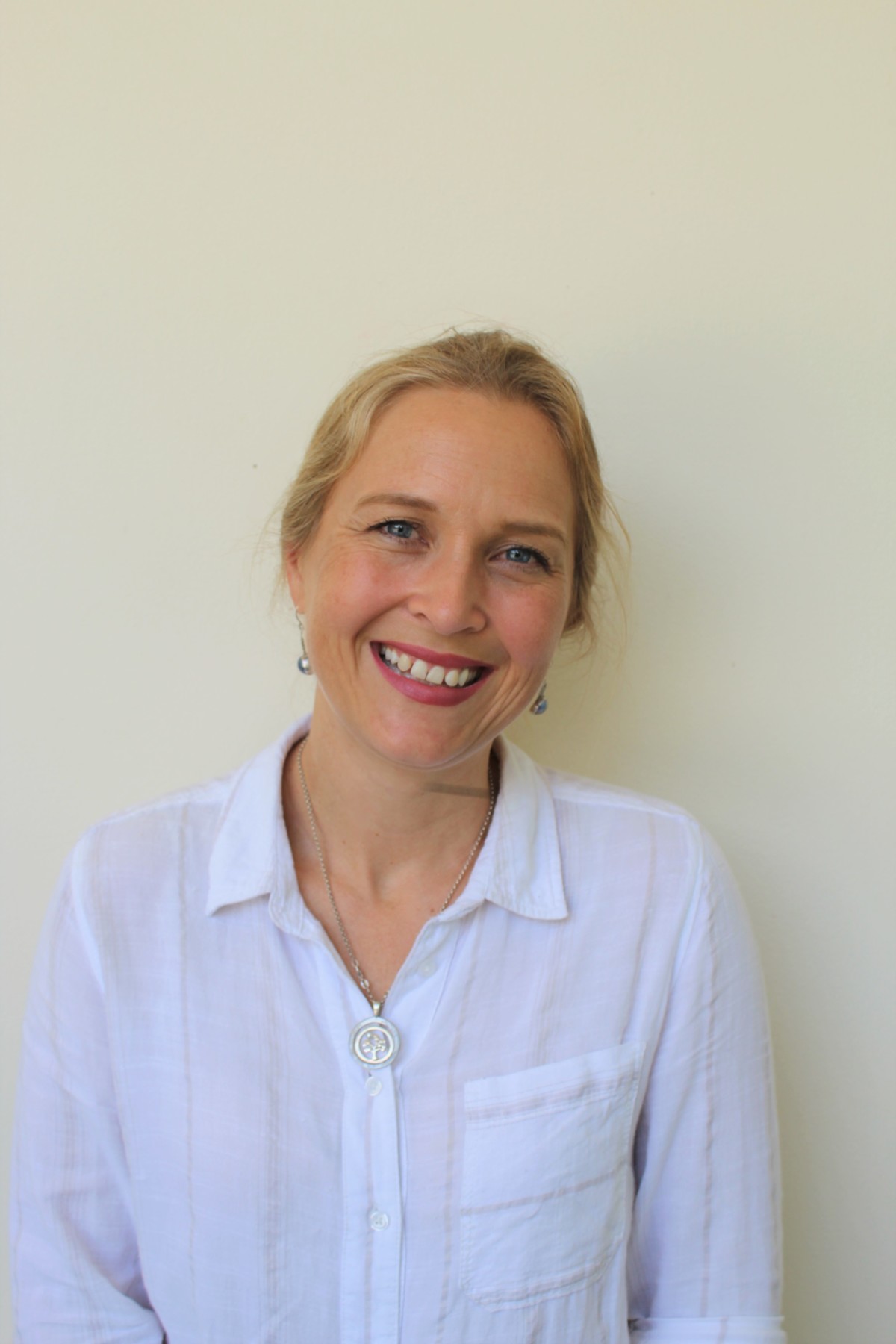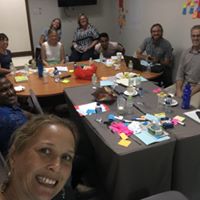Jack of all Trades: A Conversation with Dr. Bethany
No two days look alike for Dr. Bethany Beckett.
As Maluk Timor’s Director of Medical Education and mentor of the Women’s Health Social Care team, Dr. Bethany already has a more-than-full time job. Even so, she wears far more than those two hats. She arrives to work prepared to meet challenges as they arise: staff have questions, volunteers require coordination, language classes must be scheduled, lightbulbs in the dental chair need replacement. Whenever Maluk’s growth reveals a gap, Dr. Bethany readily fills it until someone else has the capacity to do so.
Dr. Bethany thrives in the jack of all trades role so important for effective altruism and strong medical care in a developing country. “It [being a good generalist] means you can keep the wheels turning and keep activity happening,” she says. Dr. Bethany works to be the momentum for progress in her home life as well, finding opportunities where her family and her Timorese friends and neighbors can support each other and grow together.
Being so accessible to staff keeps Dr. Bethany up-to-date on all of Maluk’s programs. While her strategic planning responsibilities do occasionally require her to hide away and finish editing a proposal or report – “sometimes you have got to eat the frog first,” she says – she loves the day-to-day of working with staff on whatever needs present themselves. “I do still enjoy getting down into the hospital and supervising the students and having that one-on-one clinical time,” she says. Growing up a middle child helps, she finds: she’s a good negotiator, always ready to intervene and connect people for solutions.
“Dr Bethany is extremely organized,” says Aga Moniz, Maluk Timor’s Family Medicine Program Assistant Officer. “She figures out how to make no into yes, with the right thinking.”
Dr. Bethany’s background in rural medicine informs her ability to comfortably work within so many domains at the same time. In rural medicine, she says, “you don’t have the big team of support. You must know a little bit about everything.” Her belief in strong general background shapes not just how she works in the office, but how she has constructed Maluk’s medical education program. Dr. Bethany supervises 24 Timorese doctors in an 18-month training course, ensuring those doctors come away understanding their profession as not just a job but “a vocation, a lifestyle.”
“I am quite inspired by these young people who are having to learn a medical degree – which is quite difficult! – in their fifth language,” she says. “And they are going back to a really tough job – under resourced, not mentored, not supported.” In designing the medical education curriculum, Dr. Bethany says, “a lot of what I created was looking at different aspects of what it is to be a doctor, which is a lot of being an advocate for people to find solutions, to look at upstream causes of issues, not just treat the downstream ends. So we do a whole section on domestic violence and gender-based violence and child abuse, and I think it is something the doctors never before thought of as something that was their job.”
Dr. Bethany extends this holistic view of medicine towards her role mentoring the Women’s Health Social Care team. “Family medicine is a lot about trying to keep people well,” she says, “and wellness is a lot more than your physical state of coughs and colds… adverse childhood experiences directly influence your health as an adult. Your brain is programmed when you are little because you are living in distress.” Dr. Bethany reminds that most of the Timorese population lived in this context coming through the war, and that rates of diabetes, hypertension, and learning disabilities are high because of it.
“Preventing adverse childhood experiences is a lot of social work type things. Protecting children will help with the diabetes they then won’t get at 50,” she says. “Upstream causes and preventative medicine is harder, but it is where you get the most bang for your buck. General practice, that’s the place where that happens. That’s what Timor needs lots of… really good family doctors.”
In Timor-Leste, where rural districts are often many hours away from advanced care, and sometimes cut off entirely, primary care visits are even more crucial. With country doctors often isolated, she underlines the importance of general knowledge. “I joke with the doctors and say ‘with this patient what are you going to do?’” she explains. “And if they say ‘oh I’ll refer to the physio,’ I say ‘oh do you have a physio in Baucau? So who is the physio?’”
Strong primary care helps both the doctor and the community. Dr. Bethany smiles at the stories she hears back, including that of a young doctor recently returned to his district, who found he had many more patients. He couldn’t figure out why until an old lady asked, “Doctor, what happened to you in Dili? You are different now.”
“[The community] noticed he had improved,” Dr. Bethany says. “He knew more things, he made better decisions, better attitude, and the community really responded to that and started coming and seeking his care more, because now they trusted him more… they can see his improvement and they honor that by seeking his opinion and his care, and then he feels better because they are respecting him more. So instead of the downward spiral you are flipping it, it becomes the upward spiral we need.”
Dr. Bethany has always believed in contributing to that upward spiral. “People will do things for love that they won’t do for money,” she says, explaining the strong tradition of volunteerism she grew up with. Her parents were good role models, demonstrating the importance of giving. Years later, with children of her own in Geraldton, she wanted to teach the same lessons, and thought it could be hard at home, where “our voice into their lives was smaller than their school, their community… you are surrounded by stuff and media.” Moving to Timor presented the chance not just for important work, but to help her children understand their neighbor’s country and culture, not just their own.
They moved to Timor when her youngest daughter was eight months old, and began to balance work and family by making sure the two were positively mixed, helping her children to understand and be part of the mission. Living in a normal house rather than an expatriate compound allows the children to see themselves as part of the community, and frame the family’s role here as a mutual exchange: supporting the community that supports you.
Being in Dili for longer helps. “After two years, you get invited into conversations you weren’t part of before,” Dr. Bethany says, referencing Tiimor’s relationships-based culture. Working to develop those relationships makes both a better home for her family and Maluk more effective: “we found what we had as a strength was the Timorese people, working in programs and doing it well in a Timorese way that was succeeding for this culture.”
Aga Moniz agrees: “Dr. Bethany always uses the Timorese way to make things easy for the local doctor,” he says.
Dr. Bethany also makes sure to have strong relationships with Maluk’s volunteers, devoting time each week to checking in on them, making sure they are adjusting to life in Timor and have the resources they need to work. Dr Bethany fills whatever role is required to help, saying it is sometimes like ‘being a chaplain, or a mother.’
Volunteers aren’t the only ones who turn to Dr. Bethany’s care and expertise. Local staff feel likewise, and Dr. Bethany takes time to exchange messages with expat volunteers without access to embassy doctors. “To do the work they do for Timor,” she says, “they need to be healthy.”
Strong connections to so many people is a part of Maluk’s success, something else that comes from being here for an extended period of time. “Big change is a slow burn,” Dr. Bethany says, and the family’s decision to be here for the long haul underscores this understanding of aid as a gradual process.
Dr. Bethany’s extended service and relationships allow Maluk to emphasize the slow and crucial work of capacity building. In the end, she says “we are guests in someone else’s country. Everything we do should be in alignment with what our Timorese counterparts can carry on and continue doing without us here. We don’t do anything unless we think it can be sustainable.”
Dr. Bethany drives Maluk towards this sustainability by pairing the capability of the Timorese staff with Maluk’s further strengths of “the love and support and financial donations of our international Maluk Timor to fund things to get them going and work out solutions.”
Maluk’s staff continue to thrive under her leadership. “She is a mother-figure,” Aga Moniz says. “She makes me love my job every day.”
PS – there are hardly any photos of this wonder woman because she is always taking the photos !


